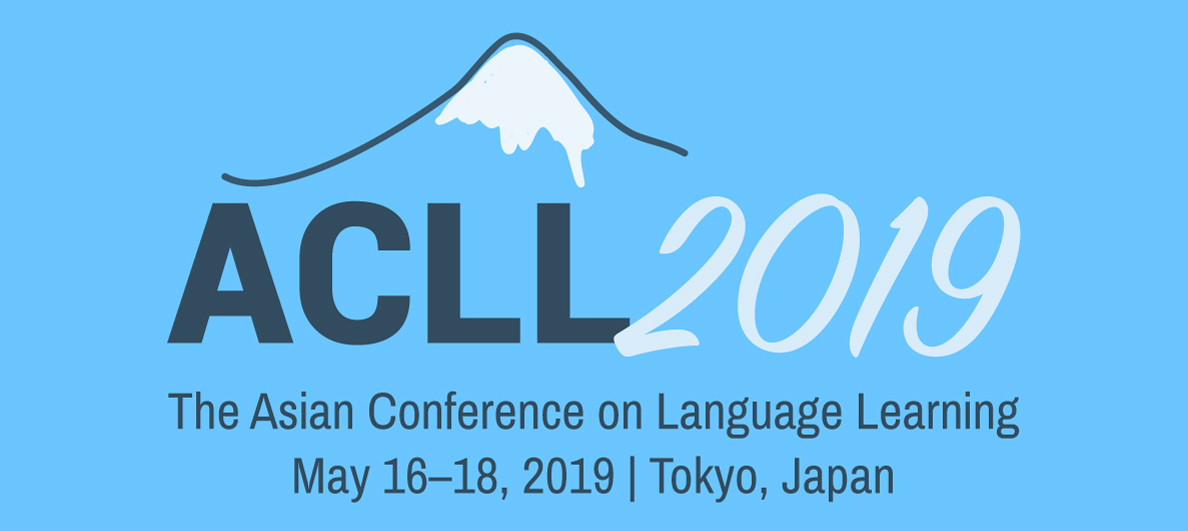Conference Theme: “Globalization, Culture and Society: What role does language play?”
April 26–28, 2012 | The Ramada Osaka, Osaka, Japan
Conference Report
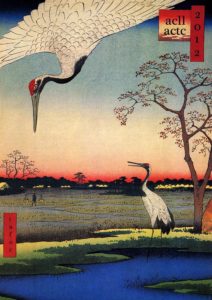 The Second Annual Asian Conference on Language Learning was held again this year with the Second Annual Asian Conference on Technology in the Classroom in Osaka, Japan. We are proud to announce that this year’s conference has grown considerably since last year, when the March 2011 earthquake and its aftermath notably affected attendance, and are equally proud to contribute to, and participate in Japans recovery.
The Second Annual Asian Conference on Language Learning was held again this year with the Second Annual Asian Conference on Technology in the Classroom in Osaka, Japan. We are proud to announce that this year’s conference has grown considerably since last year, when the March 2011 earthquake and its aftermath notably affected attendance, and are equally proud to contribute to, and participate in Japans recovery.
IAFOR conferences are interdisciplinary, international, and intercultural conferences that invite academics, practitioners, scholars and researchers from around the world to meet and exchange ideas. These joint conferences encouraged us to reflect upon how we think, as well as reason, believe, and behave, under the theme of “Learning, Culture and Society: What role can technology play?”. The conference theme is an important one to all delegates, and was reflected in the friendships and bonds that were created, strengthened and renewed during our short time together in Osaka. We would like to thank all the delegates who made the event so enjoyable, including keynote and featured speakers Deryn Verity, Barbara B. Lockee, Marjo Mitsutomi, Kuniko Miyanaga, and Jo Mynard. We would also like to thank our global academic partners and affiliates for their role in the conference, and last, but not least, the small team of volunteers who staffed the event.
Speakers
Deryn Verity
Osaka Jogakuin University, Japan
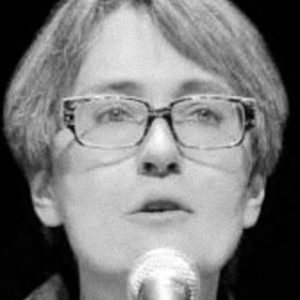 Dr Deryn P. Verity is a Professor in the Department of International & English Interdisciplinary Studies at Osaka Jogakuin University, Japan. She has lived and worked in Japan, Poland, Serbia, Slovenia, Thailand, and her own country, the United States of America. She teaches teachers Pedagogical Grammar, SLA, and other courses in two MATESOL programs based in New York City, and believes that teacher education is crucial to the future of higher education. Her interests lie in sociocultural theory and its application to pedagogy.
Dr Deryn P. Verity is a Professor in the Department of International & English Interdisciplinary Studies at Osaka Jogakuin University, Japan. She has lived and worked in Japan, Poland, Serbia, Slovenia, Thailand, and her own country, the United States of America. She teaches teachers Pedagogical Grammar, SLA, and other courses in two MATESOL programs based in New York City, and believes that teacher education is crucial to the future of higher education. Her interests lie in sociocultural theory and its application to pedagogy.
Keynote Presentation: "Beyond Borders: Language, Education and Identity"
Barbara B. Lockee
Virginia Tech., USA
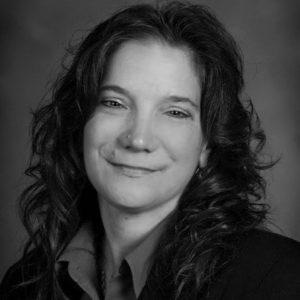 Dr Lockee is Professor of Instructional Design and Technology at Virginia Tech., USA, where she is also Associate Director of the School of Education and Associate Director of Educational Research and Outreach. She teaches courses in instructional design, message design, and distance education. Her research interests focus on instructional design issues related to technology-mediated learning. She has published more than 80 papers in academic journals, conferences and books, and has presented her scholarly work at over 90 national and international conferences. Dr Lockee is Immediate Past President of the Association for Educational Communications and Technology, an international professional organization for educational technology researchers and practitioners. She earned her PhD in 1996 from Virginia Tech in Curriculum and Instruction (Instructional Technology), MA in 1991 from Appalachian State University in Curriculum and Instruction (Educational Media), and BA in 1986 from Appalachian State University in Communication Arts.
Dr Lockee is Professor of Instructional Design and Technology at Virginia Tech., USA, where she is also Associate Director of the School of Education and Associate Director of Educational Research and Outreach. She teaches courses in instructional design, message design, and distance education. Her research interests focus on instructional design issues related to technology-mediated learning. She has published more than 80 papers in academic journals, conferences and books, and has presented her scholarly work at over 90 national and international conferences. Dr Lockee is Immediate Past President of the Association for Educational Communications and Technology, an international professional organization for educational technology researchers and practitioners. She earned her PhD in 1996 from Virginia Tech in Curriculum and Instruction (Instructional Technology), MA in 1991 from Appalachian State University in Curriculum and Instruction (Educational Media), and BA in 1986 from Appalachian State University in Communication Arts.
Keynote Presentation: "Moving Forward through Looking Back: A Historical Analysis of Instructional Technology for Language Learning"
Marjo Mitsutomi
Akita International University, Japan
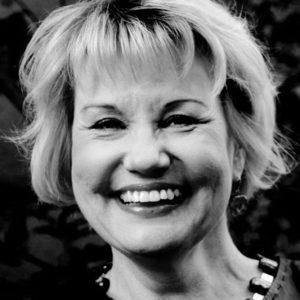 Marjo Mitsutomi is Head of English Language Teaching Practices and the Language Development Intercultural Studies Center Akita International University, Japan. Previous to her current position at Akita, she was an Associate Professor in the School of Education at Redlands University California. Marjo Mitsutomi earned her doctorate from Ball State University in applied linguistics and teaching English as a second language. She has taught and directed programs in English to speakers of other languages both in American and Japanese institutions of higher education. She has been instrumental through her collaborative research and professional presentations working with the International Aviation Association and the Federal Aviation Association to create regulations and criteria for certification to establish the level of proficiency in English necessary for all pilots. Her collaborative research projects relate to issues of second language and culture acquisition.
Marjo Mitsutomi is Head of English Language Teaching Practices and the Language Development Intercultural Studies Center Akita International University, Japan. Previous to her current position at Akita, she was an Associate Professor in the School of Education at Redlands University California. Marjo Mitsutomi earned her doctorate from Ball State University in applied linguistics and teaching English as a second language. She has taught and directed programs in English to speakers of other languages both in American and Japanese institutions of higher education. She has been instrumental through her collaborative research and professional presentations working with the International Aviation Association and the Federal Aviation Association to create regulations and criteria for certification to establish the level of proficiency in English necessary for all pilots. Her collaborative research projects relate to issues of second language and culture acquisition.
Featured Presentation: "Globalization, Culture & Society: What Role does Language NOT play?"
Kuniko Miyanaga
The Human Potential Institute
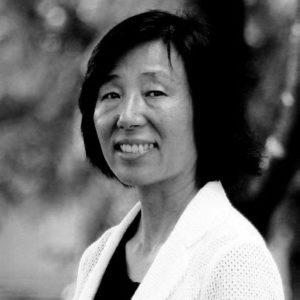 Kuniko Miyanaga is a cultural anthropologist and linguist and works on questions of globalization, identity and language. She has taught at the International Christian University in Tokyo (1974-2002), and in 2005 she joined the faculty at Tama University where she is now Professor of Anthropology, having served a term as Dean of the School. She has taught for periods abroad at the University of British Columbia, Canada, and was a Fulbright Scholar at St Michaels College, VT. USA. Professor Miyanaga has also been a Visiting Scholar at the universities of Boston, Harvard, and Stanford in the USA, and Oxford in the UK through the Japan Foundation. She is the founding director of the Human Potential Institute NPO.
Kuniko Miyanaga is a cultural anthropologist and linguist and works on questions of globalization, identity and language. She has taught at the International Christian University in Tokyo (1974-2002), and in 2005 she joined the faculty at Tama University where she is now Professor of Anthropology, having served a term as Dean of the School. She has taught for periods abroad at the University of British Columbia, Canada, and was a Fulbright Scholar at St Michaels College, VT. USA. Professor Miyanaga has also been a Visiting Scholar at the universities of Boston, Harvard, and Stanford in the USA, and Oxford in the UK through the Japan Foundation. She is the founding director of the Human Potential Institute NPO.
Featured Presentation: "Globalization, Culture and Society"
Jo Mynard
Kanda University of International Studies, Japan
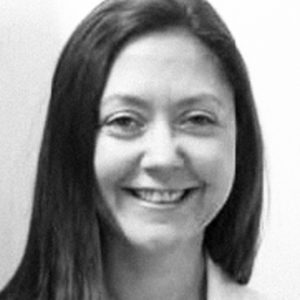 Jo Mynard is the Director of the Self-Access Learning Centre and Assistant Director of the English Language Institute at Kanda University of International Studies in Japan. She holds an Ed.D. in TEFL from the University of Exeter, UK and an M.Phil. in applied linguistics from Trinity College, Dublin. She is originally from Wales, but has lived and worked in various countries including Spain, the UAE and Japan. Her areas of professional interest are computer-assisted language learning, learner autonomy, self-access and advising in language learning. She was the convener of the conference “Advising for language learner autonomy” held at Kanda University of International Studies in Japan in November 2011 and is the co-editor of the volume “Advising in language learning: Dialogue, tools and context” to be published by Longman, UK in April, 2012. She is the editor of Studies in Self-Access Learning Journal and the founder of The Learning Hub Consultancy.
Jo Mynard is the Director of the Self-Access Learning Centre and Assistant Director of the English Language Institute at Kanda University of International Studies in Japan. She holds an Ed.D. in TEFL from the University of Exeter, UK and an M.Phil. in applied linguistics from Trinity College, Dublin. She is originally from Wales, but has lived and worked in various countries including Spain, the UAE and Japan. Her areas of professional interest are computer-assisted language learning, learner autonomy, self-access and advising in language learning. She was the convener of the conference “Advising for language learner autonomy” held at Kanda University of International Studies in Japan in November 2011 and is the co-editor of the volume “Advising in language learning: Dialogue, tools and context” to be published by Longman, UK in April, 2012. She is the editor of Studies in Self-Access Learning Journal and the founder of The Learning Hub Consultancy.
Featured Presentation: "Raising Awareness of Learning Processes with Technology Tools"
Conference Chair
Steve Cornwell
Osaka Jogakuin College, Japan
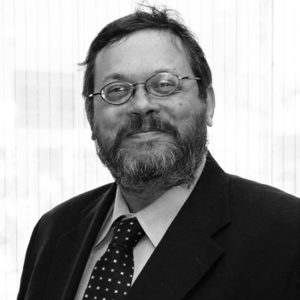 Steve Cornwell is Professor of English and Interdisciplinary Studies at Osaka Jogakuin College, and also teaches on the MATESOL program for the New School at NYU. He holds an MFA from Virginia Tech., and an Ed.D. from Temple University.
Steve Cornwell is Professor of English and Interdisciplinary Studies at Osaka Jogakuin College, and also teaches on the MATESOL program for the New School at NYU. He holds an MFA from Virginia Tech., and an Ed.D. from Temple University.
Professor Cornwell is Director of Program for the Japan Association of Language Teachers (JALT), and a member of their National Board of Directors. He is also a former editor of the JALT journal. An American who has made Osaka his home, Steve also chaired the inaugural ACLL/ACTC event last year, and is a member of IAFOR’s IAB.
Welcome Letters
Dear Delegates,
It is my great pleasure to welcome you to the Second Asian Conference on Language Learning and the Second Asian Conference on Technology in the Classroom. A few minutes of thumbing through the conference handbook (a work of art in and of itself) will allow you to see we are in for two very packed days. IAFOR, The International Academic Forum, has once again done what it does best—bring together academics, scholars and practitioners representing an exciting diversity of countries, cultures, and religion to exchange ideas and views in a forum encouraging respectful dialogue.
With our dual conference themes ("Globalization, Culture and Society: What role does language play?" / "Learning, Culture and Society: What role can technology play?") we have a full slate of presentations that in addition to examining the affect language learning has on our cultures and societies, will also examine the role of technology and its impact on our classrooms.
In addition to the many varied parallel sessions scheduled, we have the privilege of listening to two great keynotes starting with my colleague and good friend, Deryn Verity’s "Beyond Borders: Language Education and Identity" and Barbara Lockee’s "Moving Forward through Looking Back: A Historical Analysis of Instructional Technology for Language Learning". And we also have three featured speaker sessions by Marjo Mitsutomi, Kuniko Miyanaga, and Jo Mynard to look forward to.
I also would like to welcome you to Osaka, one of Japan’s truly great cities and my home for the last 17 years. Osaka is a city I really love for many reasons and so over the course of the conference I hope in addition to participating in some exciting academic exchanges, you will also have the opportunity to sample some of the delicious cuisine available here, and possibly, even visit some famous sites such as Osaka Castle (a 20 minute subway ride from the Ramada Hotel) or even take a side trip to Kyoto (35 minutes away).
ACLL/ACTC2012 affords us the opportunity for renewing old acquaintances, making new contacts, and networking across higher education and beyond. I am excited that it is finally here; let the conferencing begin!
Steve Cornwell
ACLL/ACTC2012 Conference Chair
Dear Delegates,
Welcome to the Second Annual Asian Conference on Language Learning, which is again to be held this year alongside the Second Asian Conference on Technology in the Classroom. We are delighted to report that the event has grown considerably since last year, when the March 2011 earthquake and its aftermath notably affected international attendance, and are equally proud to contribute to, and participate in Japan’s recovery.
IAFOR conferences are interdisciplinary international conferences that invite academics, practitioners, scholars and researchers from around the world to meet and exchange ideas. The programme for this conference promises to be an exciting one, with thematic topics that address the central aim of the conference in different but complementary ways, including through papers that draw on empirical research, that develop theoretical and conceptual insights, and that engage with pedagogy, and the experiential. The conference will be enhanced through its wide variety of presenters, who will draw on their diverse experiences and knowledges and on their academic, personal and geographical contexts, in a programme that promises stimulating and challenging discussion.
The ACLL conference theme of “Globalization, Culture and Society: What Role Does Language Play?”, and the complimentary "Learning, Culture and Society: What role can technology play?" has encouraged a diverse response across a number of academic disciplines. This year, 200 delegates from more than 30 countries will come together for encounters and exchanges that are both scholarly and personal as they express differing points of view, challenge each other to think differently, and search for common ground. I have no doubt that we will all be able to use the time spent at this conference for intellectual discovery and for the development of collaborative links and connections between the researchers, academics, scholars and practitioners who are attending. We have a lot to learn from each other in this international academic forum.
I would like to take this opportunity to thank our conference chair, Steve Cornwell, who has done so much to ensure the success of this young event, and who gives up much of his year to help shape IAFOR events. Also, thanks to our great line up of keynote and featured speakers: Deryn Verity, Barbara Lockee, Kuniko Miyanaga, Marjo Mitsutomi, and Jo Mynard.
I would also like to thank Stuart Picken, chairman of the IAB, and Yoshiko Cornwell for her willingness to help with myriad requests. Finally, my thanks to each and every delegate for taking the time and making the effort to travel to Osaka. I hope you are rewarded by the conference, and by the fantastic location. I look forward to meeting you all.
Warm Regards,
Joseph Haldane
Executive Director, IAFOR
